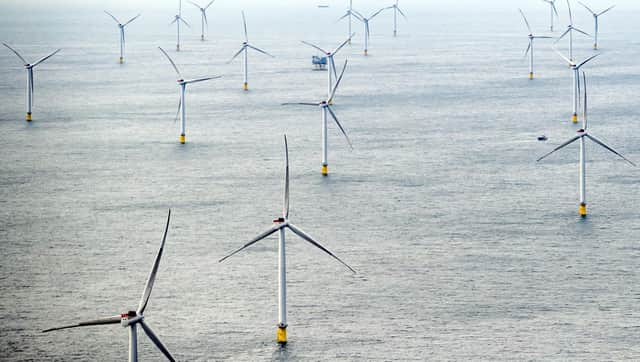Leader: Transparency is vital in energy debate


It is of paramount importance that we understand where our energy is coming from and at what cost. Therefore it is particularly alarming to learn SNP politicians have for years been “robotically recycling” the spurious claim Scotland has a quarter of Europe’s offshore wind power potential. Pro-union think-tank These Islands has found the true figure is around five per cent.
Having grossly exaggerated in 2013 what an independent Scotland could expect to earn from North Sea oil and gas, it seems First Minister Nicola Sturgeon and her predecessor Alex Salmond have been even more misleading on the renewables intended to replace them.
Advertisement
Hide AdAdvertisement
Hide AdMinisters must correct the record at Holyrood. Civil servants too have serious questions to answer.
Ms Sturgeon has already had to correct the official parliamentary record after falsely asserting to MSPs last month: “Our net energy consumption is already provided by renewable energy sources.”
The falsehood of this statement is of huge significance both to the debate over energy security in an independent Scotland and the broader problems facing the drive towards net zero.
When it is not windy we fall back on fossil fuels as there is no cost-effective means of storing energy from wind farms. The UK is importing vast quantities of Liquefied Natural Gas from overseas. When it is too windy, wind farm operators receive payments to switch turbines off to prevent the National Grid from becoming overwhelmed.
Ms Sturgeon must hope that by this time next year Scots will have voted for independence in a legally binding referendum. Unanswered questions on energy security must join others on issues such as currency, European Union membership ambitions and the deficit.
And if Scotland cannot get close to 100 per cent renewably-sourced electricity – and electricity is just a fifth of energy usage – what hope is there for the world as a whole?
Politicians and scientists at COP27 in Sharm El-Sheikh this week must forge a path towards a solution. Otherwise it is difficult to see how net zero ambitions can be met.